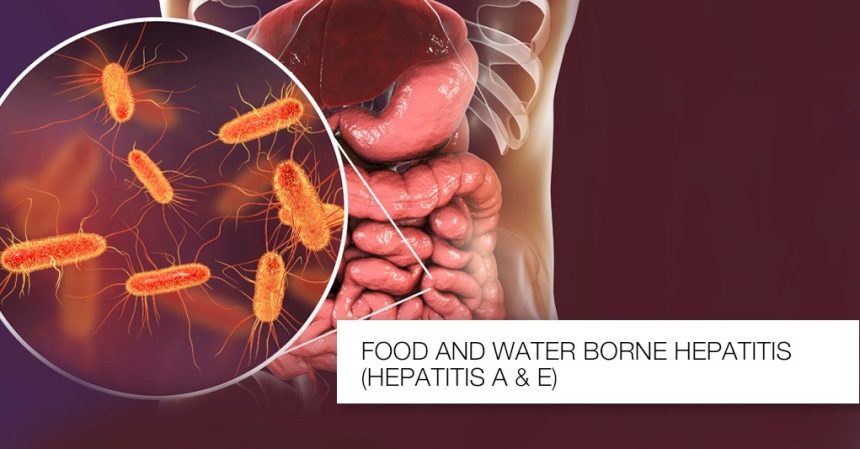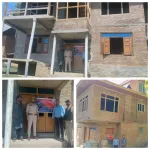Viral hepatitis is as much a public health problem in the UT as is tuberculosis. Hepatitis means “inflammation of the liver” that can over a period of time, may or may not cause irreversible injury to the liver both in the short and the long term.
How frequent is the disease in Kashmir?
In recent months, the valley has witnessed multiple outbreaks. Outbreak is defined as clustering of atleast 5 cases from a single setting. According to local newspapers, atleast 38 such outbreaks have occurred in the year 2024 across 10 districts of Kashmir.Most of the outbreaks were in the south Kashmir districts of Anantnag and Shopian, although other districts of Kashmir were also affected. HAV virus was the main culprit, HEV being responsible in few others. Poor hygiene & sanitary conditions including contaminated water was responsible for the spread of disease. The outbreaks were severe in the month of July & continued till November last year.
Recent outbreak in January 2025
Recent cases have been identified in South Kashmir’s Anantnag district. According to officials, 27 cases-all within the age group of 6 to 16 years-have been reported in the area which falls under the Verinag medical block. The area is where the river Jhelum originates. A water stream passing through the catchment areas gets polluted, and it is likely this contaminated water that has caused the Hepatitis-A cases (as per local health authorities). Moreover just a few days back authorities have tested multiple springs in Ganderbal and few regions of Srinagar district& have found that 37 out of 40 sources are contaminated (unfit for drinking). But it looks we haven’t learnt from our past.
Any past medical data on similar outbreaks
As a medical student when we used to study about the waterborne hepatitis and the work Kashmiri scientist (Dr Khuroo etal) have done in this regard, fills ones heart with utter surprise. It should be remembered that the Hepatitis E virus which is one of the viruses which causes the mentioned disease was discovered by Dr Khuroo etal while studying one of the outbreaks in the year 1978 in Kashmir. Even then the disease couldn’t be controlled since, as we have scare data subsequently. One of the epidemiological survey by Kadri etal from the year 2015 till 2017 (3 yrs) documented 23 outbreaks due to HAV/HEV virus in Kashmir valley. However the disease outbreaks still continue to happen unfortunately and hence educating the masses seems to be the most crucial step. So what do we know about the disease and how to prevent it. I will try to briefly explain as below.
What is waterborne/food borne hepatitis?
Waterborne/foodborne hepatitis refers to infection of liver caused by hepatotropic viruses (Hepatitis A & E).
How do these viruses spread?
Hepatitis A and E, both are food and water borne. Both the viruses are shed in the stool. HAV, most commonly spreads when a person who has the infection does not wash hands after using the bathroom and then touches food, a surface, or another person’s mouth. HAV outbreaks in the community have been reported due contamination of water or food.HEV infection spreads by fecally contaminated water in endemic areas. In areas with poor sanitation, there is a baseline endemic of HEV, which can change into explosive epidemic intermittently.
How does a patient present?
The presenting symptoms of both HAV and HEV are overlapping. For HAV, the severity of symptoms depends upon the person’s age; in children, there may be few or no symptoms (sub-clinical infection). In adults, the disease is generally symptomatic and prolonged. Both HAV and HEV can rarely cause acute liver failure which leads to involvement of brain and a high death rate. Symptoms unrelated to involvement of the liver may also be manifested which include acute pancreatitis, neurologic diseases like meningoencephalitis, etc. The initial symptoms of HAV and HEV infection may include, fatigue, nausea, fever, loss of appetite, right upper abdominal pain. With the progression of the illness dark-colored urine, light-colored stools, yellowing of the skin or whites of the eyes (jaundice), and itchy skin may develop.In countries like India, where HEV infection is endemic, acute liver failure occurs more frequently when HEV occurs during pregnancy. Acute HEV infection during pregnancy has been associated with a mortality rate of 15 to 25 percent.
How can we diagnose such cases?
The diagnosis of HAV and HEV infection is made by simple blood tests. Presence of IgM antibodies against the specific antigen of the viruses is detected in the blood. Laboratory findings include elevated serum concentrations of bilirubin, alanine aminotransferase (ALT), and aspartateaminotransferase. Symptoms coincide with a sharp rise in serum ALT levels, which may rise up into the thousands and return to normal during recovery. Resolution of the abnormal biochemical tests generally occurs within two to six weeks after the onset of the illness. Increasing Prothrombin time may be the earliest warning sign of patient likely to develop acute liver failure and die.
How to treat such patients?
There is no cure for hepatitis A or HEV virus infection; most people recover with supportive treatments including rest and good nutrition. Hospitalization is required in few high risk patients, however all such cases should be under care of specialized doctors (gastroenterologists, or pediatricians). Though, there are no clear recommendations for when a patient can resume work, an infected person should not join back work or school until the fever and jaundice have resolved and the appetite has returned. Most people with HAV infection will recover fully with in three months. A small percentage of HAV infected patients will have prolonged or relapsing symptoms for six to nine months. HAV infection gives lifelong immunity. After an episode of HEV infection, the immunity may last from 18 to 24 months.
How can we prevent the spread (Precautionary Measures)
Hand washing is one of the most effective strategies for reducing transmission since the virus can live on a person’s fingers for up to four hours. Hands should ideally be wet with water and plain or antimicrobial soap and rubbed together for 15 to 30 seconds. Special attention should be paid to the fingernails, between the fingers, and the wrists. Hands should be rinsed thoroughly and dried with a single-use towel. It is not clear if alcohol-based hand rubs are effective against hepatitis A virus. For this reason, food handlers, daycare providers, travelers, and anyone else who is at risk of transmitting or becoming infected with hepatitis A is advised to wash their hands with soap and water when possible. Alcohol-based hand rubs are a reasonable alternative if a sink is not available.
Hands should be cleaned after changing a diaper or touching any soiled item. They should also be washed before and after preparing food and eating, after going to the bathroom, and after handling garbage or dirty laundry.
Safe food preparation — Taking precautions when preparing foods can reduce the risk of becoming ill as below:
- Do not drink raw (unpasteurized) milk or foods that contain unpasteurized milk.
- Wash raw fruits and vegetables thoroughly before eating.
- Use precooked, perishable, or ready-to-eat food as soon as possible.
- Keep raw meat, fish, and poultry separate from other food.
- Wash hands, knives, and cutting boards after handling uncooked food, including produce and raw meat, fish, or poultry.
- Cook chicken eggs thoroughly, until the yolk is firm.
- Refrigerate foods promptly. Never leave cooked foods at room temperature for more than two hours
With the availability of HAV vaccine, all the children and people at high risk of acquiring HAV infection should be vaccinated.
Conclusion
In the end, I reiterate the old proverb “Prevention is better than cure” holds true even now & also for the same disease outbreaks our valley is witnessing every now and then. In the absence of a definitive cure for the hepatitis related liver failure, our focus as doctors and common people should be on preventive measures.
(The Author is Senior Consultant Gastroenterology at Amandeep BR Medicity, Srinagar)








